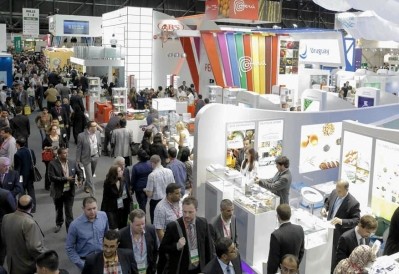Gulfood 2013 blog
The next big food gold rush

And given the sheer mass of delegates and exhibitors present, it’s hard to doubt this—even though other shows might well refute the claims.
Taking place at the city’s World Trade Centre, the scale of this event is immense. We’re sure we will be given the final tally of exhibitors and footfall in due course, but for the time being the venue feels more akin to the Olympic stadium in London last August than to a food trade show.
So why is it so popular? On a macro level, the UAE—of which Dubai is the commercial centre—has done a fantastic job to present itself as a business hub for a wide range of industries. This has been the plan ever since the country federated in 1971; back then Dubai’s ruler, Sheikh Rashid, worked hard to build up a business and free-zone infrastructure that would make the city extremely tempting for global businesses to base their regional headquarters here.
But as far as the industry is concerned, the more cities like Dubai, Abu Dhabi, Riyadh and Jeddah in Saudi, Qatar’s Doha—likely to be the richest place on earth—and other states like Bahrain, Qatar and Kuwait grow, the wider their tastes become and the more they need distribution channels.
Regional shows like Gulfood are all about distribution and marketing. Like India and China, the Middle East is in the process of a gold rush, meaning that companies want to tackle this market head-on. And, on the whole, the Gulf is wealthy, so that means premium players and innovators want a slice of the pie.
There is very little representation by local producers at the show. Aside from the big Saudi players like Sadia, the poultry producer, few companies base their production in this region for obvious regions like climate and conditions.
Instead, companies from Europe, the Americas—Brazil and Argentina have a big presence as massive trading partners for the region—and Asia-Pacific companies are here to find local distributors as they develop their supply channels.
The talk is not about innovation, but acquisition and partnership. Indeed, it quickly becomes apparent, as one wades through the mass of people and the forest of stands, that many company representatives seem completely unaware about the formulation of their products, although they know their business’s growth plan in depth.
This is very interesting for an observer who has witnessed a number of trade shows around the Asia-Pacific region, where innovation and supply come to the fore. We will keep you updated on show developments over the next couple of days.
























